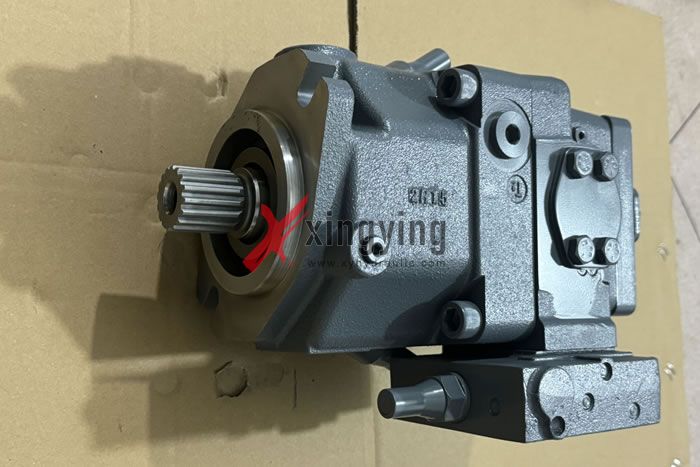Troubleshooting Slow Actuator Response and Low Pressure in Rexroth Hydraulic Pumps

Troubleshooting Slow Actuator Response and Low Pressure in Rexroth hydraulic pumps
In industrial machinery operations, Rexroth hydraulic pumps play a pivotal role in ensuring efficient and smooth equipment performance.
However, issues such as slow actuator response and insufficient working pressure are frequently reported by users.
These problems can occur suddenly, even without any manual intervention, leading to confusion and production delays.
Understanding the root causes and implementing effective solutions is essential to maintaining system reliability and performance.
Common Cause 1: Inadequate Oil Supply
One of the primary culprits is related to oil tank problems. A low oil level, blocked oil pipes or filters, or excessive air leakage in the suction line can restrict the oil supply to the hydraulic pump. To resolve this:
Check and adjust the oil tank level to meet operational standards.
Clean blocked oil pipelines and replace or clean oil filters.
Inspect pipe joints for looseness and tighten them to eliminate air leaks.
Additionally, starting the pump without pre-filling it with oil can trap air inside the system, reducing efficiency. In such cases, refill the pump through the return port to purge air bubbles.
Common Cause 2: Internal Pump Malfunctions
Internal damage or component failure can significantly impact the performance of a Rexroth hydraulic pump. For example:
A broken return spring in the pump core may prevent the plunger from sealing correctly, causing internal leakage. Replacing the damaged spring is necessary.
Incorrect connections can create axial forces, causing high- and low-pressure chambers to mix. Reconfigure the connection to eliminate such forces.
For variable displacement Axial Piston Pumps, an excessively small control angle can lead to weak response and pressure loss. Adjust the angle appropriately.
Common Cause 3: Hydraulic Oil Issues
The quality and condition of hydraulic oil have a direct impact on pump function.
Contaminated or inappropriate oil can damage internal components like the cylinder block, valve plate, or plungers, resulting in leakage and inefficiency.
Preventive actions include:
Using clean, high-quality hydraulic oil as recommended.
Regularly checking for component wear and replacing damaged parts.
Managing oil temperature—too low increases viscosity and response lag, while too high reduces oil sealing effectiveness. Select oil with suitable viscosity and maintain optimal temperature.
Why Choose Us?
Our company specializes in supplying high-performance Rexroth Hydraulic Pumps and provides comprehensive after-sales maintenance services.
All our products undergo rigorous quality inspections, ensuring durability and consistent performance.
By choosing us, you can avoid many of the common operational issues described above.
Whether you're facing technical challenges or seeking to purchase genuine Rexroth hydraulic components, we’re here to help.
contact us today to receive expert guidance and premium product solutions tailored to your needs.
Why Choose XingYing Hydraulic as Your Supplier?
1.Direct from Manufacturer: Benefit from competitive pricing on top-quality hydraulic products, sourced directly from our factory in China.
2.Custom Solutions: Our expertise allows us to tailor hydraulic components to your precise requirements, ensuring optimal performance.
3.Reliable Supply: Count on us as your trusted supplier for consistent quality and timely delivery, backed by our reputation in the industry.